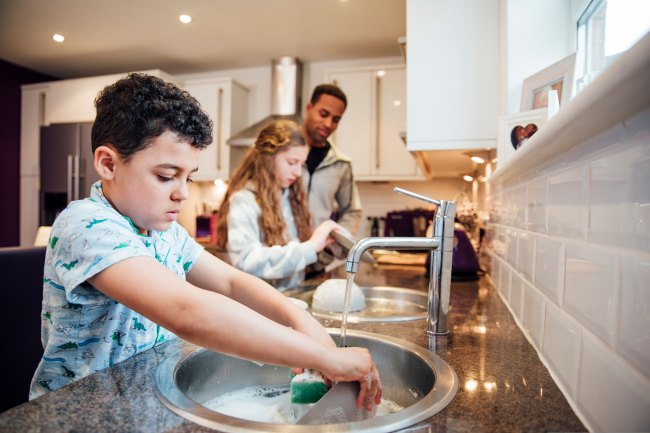News
New Year, new you, no more flushing wet wipes down the loo.
Water UK is urging the public to make a New Year’s resolution we can all keep for 2024: “Bin the Wipe”.
Almost 1 in 5 UK adults admit to putting wet wipes down the loo
- 76% of UK adults say they are aware of the damage, pollution or harms flushing wet wipes can cause*
- 88% say protecting homes, animals and the environment is important to them**
- However, 31% of UK adults flush items such as cotton pads and nappies down the loo***
In 2024, Bin the Wipe!
We all know how difficult it can be to keep those New Year’s resolutions. Well, this one is really easy - by placing a bin next to your loo, it’s a simple thing to remember to do: Bin the Wipe!
Whether used for household cleaning, make-up removal or baby care, flushing wet wipes contributes to polluting our rivers and seas, and can cause harm to marine life. Wipes can combine with other flushed items in our pipes and sewers, causing fatbergs, blocked and burst pipes, flooding and sewage leaks in our homes, costing the country more than £200 million a year.
Despite this, new research reveals nearly 1 in 5 UK adults (17%) still flush wet wipes down the toilet.
Reasons for flushing wet wipes stated were: the belief that it is safe to do so (43%), convenience (36%), always done this (26%), don’t know any other way (15%) and not having a bin in the bathroom (14%).
The Bin the Wipe campaign aims to educate the public on the harms of disposing of wet wipes and other non-flushable items down the toilet.
The largest ever fatberg was discovered in Whitechapel in 2017. The 250-metre-long mound of fat and unflushables, weighing in at 130 tonnes (the equivalent of 11 double decker buses!), took Thames Water engineers nine weeks to remove. Meanwhile objects including mobile phones, clothing, toys, bottle caps and tennis balls are frequently flushed and end up at sewage treatment works.
Water and sewerage companies in England and Wales are planning to invest £11 billion to start to overhaul our sewage network and reduce the use of storm overflows as much as possible.
William Davies, Communications Director, Water UK, said:
“We know the harms flushing wet wipes can cause yet our polling shows that many of us are still doing it.
“In 2024, we want everyone to make a resolution to prevent non-flushable waste going down the loo and to dispose of wet wipes and other items in the bin. By making this simple change we can do our bit to protect the environment and our homes.”
Robbie Moore MP, Minister for Water, said:
“Start 2024 with a New Year’s resolution we can all keep - Bin the Wipe! I urge everyone in the UK to get behind this campaign and to be mindful of how we dispose of our waste. If you need to use wet wipes, dispose of them in the bin, not the loo.
“We are also taking action and have recently consulted on banning wet wipes containing plastic across the UK to reduce plastic and microplastic pollution – all part of our ambitious Plan for Water delivering more investment, stronger regulation and tougher enforcement across the water system.”
ENDS
Notes to editors:
For further information contact us on 020 7344 1805 or email comms@water.org.uk
Bin the Wipe campaign:
- Bin the Wipe is a national campaign from Water UK to tackle one of the UK’s biggest issues when it comes to blocked drains and damaged sewers: flushed wet wipes. You can find more information at www.binthewipe.org
Survey:
- Savanta surveyed 2,295 UK adults online between 9th and 10th December 2023. Data was weighted to be nationally representative of all UK adults by age, gender region and social grade.
- *In this survey we asked respondents their awareness of damage, pollution and the harms that flushing wet wipes can cause. The following six consequences of flushing wipes were presented to respondents: blockages, burst pipes and leaks in your home; water and sewage flooding and damage in your home; fatbergs that block sewers; river and sea pollution; and harm to the environment and sea and river animals. Across all six, an average of 76% of respondents said they were aware of these consequences flushing wet wipes could cause.
- **In this survey we asked respondents about the importance of protecting homes, animals and the environment. The following five options were presented to respondents: protecting your home; protecting animals; protecting the environment; preventing river and sea pollution; and using environmentally friendly products. Across all five options, an average of 88% of respondents say that protecting homes, animals and the environment is important to them.
- ***Other items included: Cotton pads, sanitary pads, tampons, hair, nappies, cat litter, dental floss, condoms, contact lenses and chewing gum.




